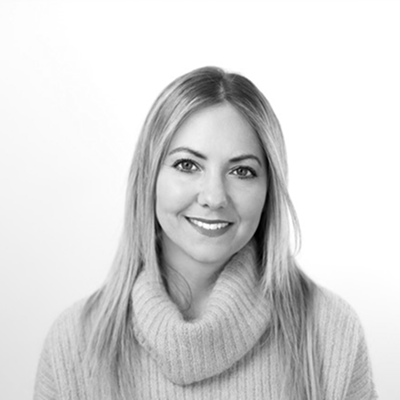
ASKING FOR A FRIEND
How do I stop comparing myself to everybody else?
ASKING FOR A FRIEND - QUESTION
Renee Hyde and psychologist Sharon Draper, with Andy Wright moderating, unpacked why we compare ourselves to others online: it’s normal, social media is designed to hook us, and everyone’s just sharing a highlight reel. Their advice? Set clear boundaries, limit your scrolling, put your phone away when you need focus, and swap doom scrolling for something that actually restores you — all while remembering to go easy on yourself.
We've all been there – mindlessly scrolling through Instagram, watching everyone else's highlight reel, and feeling like we're falling short. It's that familiar pang of comparison that leaves us questioning our own worth and achievements.
This question was answered by Renee Hyde– Client and Agency Leadership at Howatson+Company with expertise running large integrated clients globally, and Sharon – Psychologist with 13 years' experience helping people gain insight into their thoughts and behaviours, with Andy Wright– Host, CEO Streamtime moderating the discussion.
Understanding why we compare ourselves to others
The first step in stopping comparison is recognising that you're not alone in this struggle. As Renee explains: "I think this is so normal and I've been really aware of this behaviour recently having children and starting to think about social media for them."
Sharon reinforces this point, noting that even when we intellectually understand social media isn't real, we still feel affected: "I have a lot of clients who know that people are presenting their this not real sort of self but yet they still feel lesser. So even that knowledge sometimes isn't always enough."
The age-old saying holds true here – as Sharon confirms: "Comparison is the thief of joy. Absolutely."
Social media is designed to hook you
It's crucial to understand that your struggle with comparison isn't a personal failing. Renee points out: "Social media is designed to be addictive and it is similar to gambling that the algorithm is designed to bring up content and to make you doom scroll and stay there."
People naturally curate their best moments online. As Renee observes: "People curate the best version of themselves on social media. There isn't a lot of content of people rushing late home or not fitting their latest pair of jeans because they've had a great weekend."
Creating practical boundaries
The key to stopping comparison lies in setting clear boundaries with social media. Renee shares a game-changing strategy: "I've recently used the feature on Instagram where it gives you a time limit each day and then it pops up and says you've reached your time limit. And that has been game-changing for me in terms of just being aware of my habits."
Sharon emphasises the importance of physical boundaries: "My phone is on silent always. I'm just forever on silent because I do not want that thing to grab my attention at any time. I want to choose to use it."
Managing your attention and energy
Every notification pulls your focus away from what matters. Sharon explains: "Every time you get a message and you're busy doing something your attention goes to that. So every time that happens your energy goes to something else and then it takes you away from that thing that you're doing."
For productive work, Sharon recommends: "When you want to be productive doing something you've got to put your phone away. It has to be away."
Finding healthier alternatives
Instead of doom scrolling when you're bored or avoiding feelings, consider better reset habits. As discussed in the conversation, alternatives might include "listening to some music or going for a walk around the block."
Sharon notes that phones become "a great distraction" and are "too easy" to reach for when we want to avoid uncomfortable feelings or boredom.
Moving forward with self-compassion
Remember that learning to stop comparing yourself to others is a process, not a destination. The goal isn't to eliminate social media entirely, but to develop a healthier relationship with it. As Sharon suggests, it's about "trying to find a way to live with it" while maintaining awareness of how these platforms are designed to capture your attention.
You have the power to choose when and how you engage with social media. By setting boundaries, creating awareness around your habits, and having alternative activities ready, you can break free from the comparison trap and focus on your own journey.
our guests
Industry Leader
.png)
Renee Hyde
Howatson+Company
Mental Health Expert

Sharon Draper
The Conscious Project
Host

